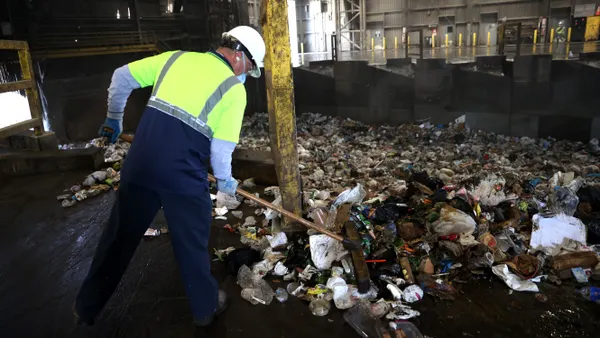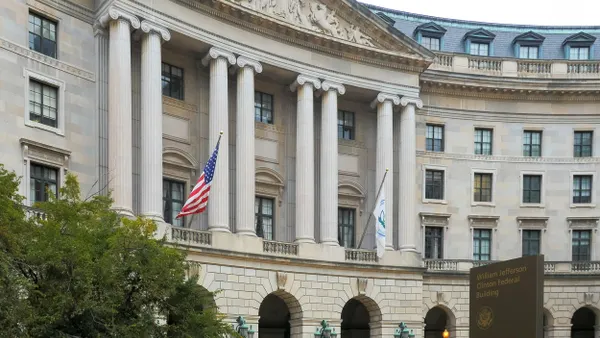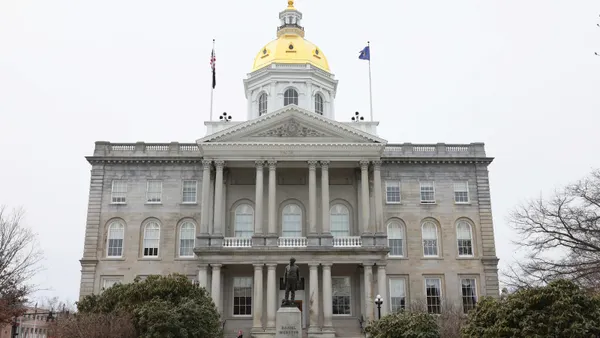Dive Brief:
- Plans for the Gregory Canyon Landfill in San Diego County, which have been in the works since at least 1994, have officially been canceled in a major victory for the Pala Band of Mission Indians. The Native American tribe has fought the project for years because it would involve part of Gregory Mountain, which they consider sacred, as reported by The San Diego Union-Tribune.
- Gregory Canyon Limited LLC has sold about 700 acres of the 1,770-acre site to the Pala for $13 million. This involves the western side of the mountain — the tribes already owns the eastern side — and the canyon where the landfill would have been built.
- The project has been tied up for years due to changing ownership, legal challenges, financial problems, permitting delays and many other factors. Developers would now like to use the remaining land for residential and commercial development, which the tribe supports.
Dive Insight:
Anyone trying to expand an existing landfill, let alone build a new one, can expect it will take some time. Though the planning process for this one had been going on so long that even tribal representatives seemed surprised they had finally defeated the project. Whether this victory can be translated to anti-landfill sentiment elsewhere remains to be seen though it's safe to say that most opposition groups don't have that kind of money at their disposal to buy the land.
Now that the project isn't happening, the county will need to reassess its plans, as consultants for Gregory Canyon previously predicted that regional capacity could run out within less than 10 years if the landfill wasn't built. A recent study found that local residents generate more waste than any other urban region in the state with per capita numbers far higher than the national average. These figures were largely driven by cities other than San Diego, though increased diversion is also a focus there.
The city has set a goal of 75% diversion by 2020 — matching a statewide goal — and made this part of collection contracts it renewed earlier this year. While the city hasn't taken the full steps of some others with "zero waste" goals, such as banning polystyrene food containers, it is closer to achieving its target than many others in the country.











